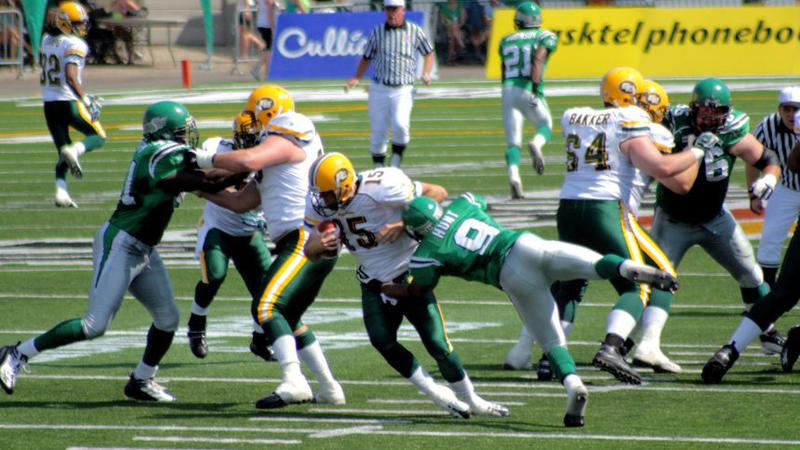
Family death a catalyst for the career of CFL great Reggie Hunt
Reggie Hunt said he’s blessed to have had the football career he did.
But the event that turned the focus of the Saskatchewan Roughriders great to the sport was anything but a blessing.
“I still remember that night like the back of my hand. I was 13 years old, it was late night or early morning and my aunt knocked on the door and it was uncommon; that doesn’t happen,” Hunt recalled.
His cousin and role model, Fred Washington, who was in the middle of his rookie season with the NFL’s Chicago Bears, was killed in a car crash in December 1990.


